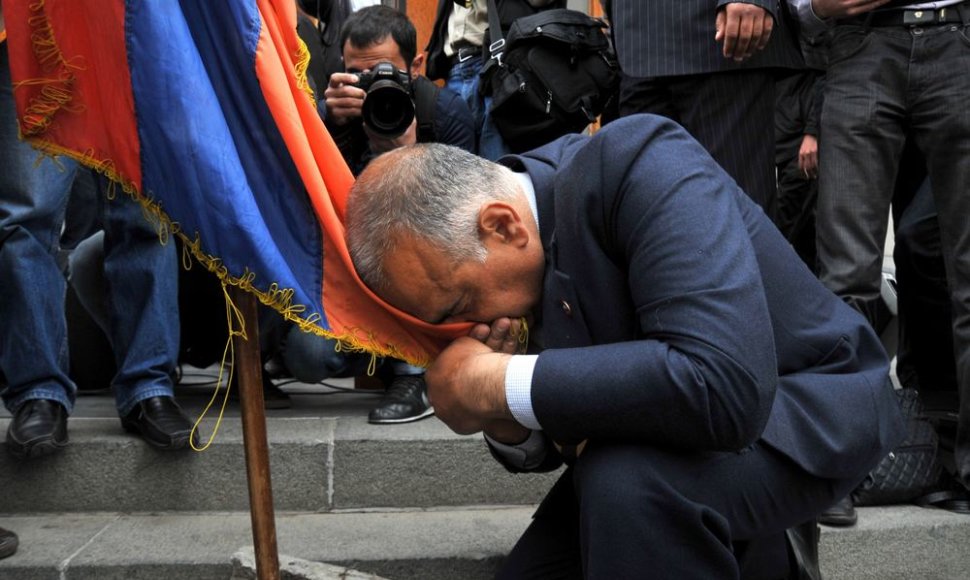"It means that it will not sigh the Free Trade Agreement with the EU, if that is the choice it makes. This revises the situation, reduces the level of ambition regarding the integration and cooperation with the EU," Lithuania's Foreign Minister Linas Linkevičius told BNS in comment of the statement issued by the Armenian president.
"We respect any choice made by countries, however, they will not be able to sign both agreements due to different tariff requirements," the minister said.
Armenia was earlier expected to initial the Association and Free Trade Agreement with the EU during the EU Eastern Partnership summit in Vilnius in the end of November.
Armenia's President Serzh Sargsyan announced the decision to join the Customs Union after meeting with Russian President Vladimir Putin.
Sign of despair
Armenia's decision to join the Russian-led Customs Union was caused by pressure from Moscow, Lithuanian political reviewer Vytis Jurkonis has said.
Jurkonis, a lecturer at Vilnius University's International Relations and Political Science Institute, says that the statement made by the Armenian president on the move to accept the Russian proposal, thus thwarting option of signing the Free Trade Agreement with the European Union (EU), can be viewed as a sign of despair.
"The statement should not be a surprise to many of those who have said that Armenia is among the most Russia-dependent nations. On the other hand, the benefits and efficiency of the Customs Union with Belarus, Kazakhstan, and Russia, when Armenia has no borders with any of the countries, is not convincing," Jurkonis told BNS.
"Without a doubt, it is part of a larger game – the Russian Federation is stepping up pressure upon countries of the Eastern Partnership program so that they do not sign Association Agreements. Armenia's geographical location and its complex relations with neighbors are unenviable. The statement can be viewed as a certain sign of despair due to the rather indefinite situation Armenia is in. In any case, Russia and the Customs Union are hardly a better alternative to the European perspective," he said.












